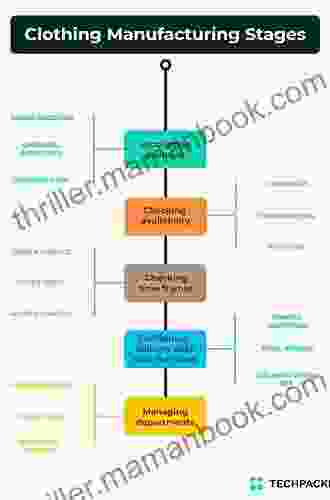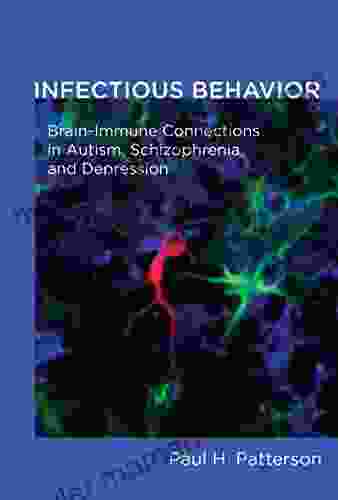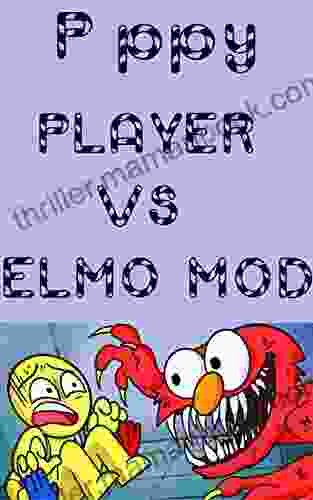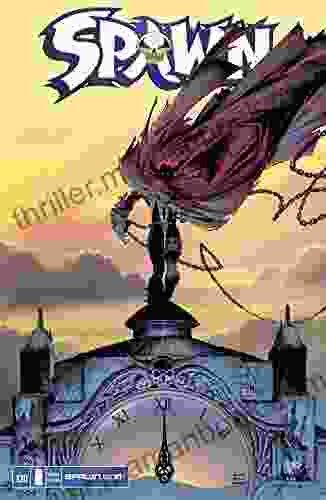Brain Immune Connections In Autism Schizophrenia And Depression

4.8 out of 5
| Language | : | English |
| File size | : | 1662 KB |
| Text-to-Speech | : | Enabled |
| Enhanced typesetting | : | Enabled |
| Word Wise | : | Enabled |
| Print length | : | 208 pages |
| Screen Reader | : | Supported |
The human body is a marvel of interconnected systems, each playing a vital role in our overall health and well-being. Among these systems, the brain and the immune system stand out for their profound influence on our physical, mental, and emotional states.
In recent years, groundbreaking research has uncovered intricate connections between the brain and the immune system, shedding new light on the development and progression of several neuropsychiatric disorders, including autism, schizophrenia, and depression.
This article will delve into the fascinating realm of brain immune connections, exploring the latest findings and their implications for understanding and treating these complex conditions. We will examine the role of inflammation, glial cells, cytokines, and other immune system components in shaping brain function and behavior.
Inflammation and Neuropsychiatric Disorders
Inflammation is a natural response to injury or infection, mobilizing the immune system to repair and protect the body. However, chronic inflammation can have detrimental effects on various organs, including the brain.
Research has shown that elevated levels of inflammatory markers are present in individuals with autism, schizophrenia, and depression. This suggests that inflammation may play a significant role in the development and progression of these disorders.
Inflammation can disrupt brain development and function by damaging neurons, impairing neural communication, and altering neurotransmitter levels. It can also lead to oxidative stress, a process that harms cells and tissues.
Glial Cells: The Brain's Immune Sentinels
Glial cells are non-neuronal cells that make up over half of the cells in the brain. They were once thought to play a supporting role, but recent research has revealed their crucial involvement in immune responses and brain function.
Two types of glial cells, microglia and astrocytes, are particularly important in brain immune connections. Microglia are the primary immune cells of the brain, constantly surveying the environment for signs of damage or infection.
Astrocytes, on the other hand, have a more diverse range of functions, including nutrient transport, waste removal, and synaptic regulation. They also play a role in immune responses by secreting cytokines and other signaling molecules.
Dysfunction of glial cells, such as overactivation or impaired function, has been implicated in neuropsychiatric disorders. For example, excessive microglial activation can lead to neuroinflammation, while astrocyte dysfunction can disrupt neural communication and synaptic plasticity.
Cytokines: Chemical Messengers of the Immune System
Cytokines are small proteins that act as chemical messengers within the immune system, regulating immune responses and communication between cells.
Certain cytokines, such as interleukin-6 (IL-6) and tumor necrosis factor-alpha (TNF-α),have been found to be elevated in individuals with autism, schizophrenia, and depression. These cytokines can promote inflammation, damage neurons, and impair brain function.
Conversely, other cytokines, such as interleukin-10 (IL-10),have anti-inflammatory and neuroprotective properties. Dysregulation of cytokine balance can contribute to the development and progression of neuropsychiatric disorders.
Treatment Implications
The growing understanding of brain immune connections has opened up new avenues for treatment strategies for autism, schizophrenia, and depression.
Anti-inflammatory drugs, such as nonsteroidal anti-inflammatory drugs (NSAIDs) and corticosteroids, have shown promise in reducing symptoms and improving outcomes in some individuals with these disorders.
Modulating glial cell function, through drugs or other interventions, is another potential treatment approach. For example, drugs that inhibit microglial activation or promote astrocyte function are being investigated for their therapeutic potential.
Cytokine-based therapies, which aim to restore cytokine balance, are also being explored. This could involve using antibodies to neutralize pro-inflammatory cytokines or administering anti-inflammatory cytokines.
The brain immune connections are a complex and fascinating area of research, with profound implications for understanding and treating neuropsychiatric disorders.
Chronic inflammation, glial cell dysfunction, and cytokine dysregulation are key factors that contribute to the development and progression of autism, schizophrenia, and depression.
By targeting these immune system components, researchers and clinicians are developing novel treatment strategies that hold promise for improving outcomes and enhancing the lives of individuals affected by these conditions.
As research continues to unravel the intricate interplay between the brain and the immune system, we can anticipate further advancements in diagnosis, treatment, and prevention of neuropsychiatric disorders.
References
- Hsiao, E. Y., & Patterson, P. H. (2011). The role of the immune system in the development and progression of schizophrenia. Schizophrenia Bulletin, 37(6),1265-1277.
- McEwen, B. S., & O'Connor, K. A. (2019). The brain-immune axis and the neurobiology of stress.and Behavior, 110, 1-12.
- Miller, B. J., & Raison, C. L. (2016). The role of inflammation in depression: From evolutionary imperative to modern treatment target. Nature Reviews Immunology, 16(1),22-34.
- Nugent, B. M., & McCarthy, M. M. (2018). Autism spectrum disorder and the immune system: A bidirectional relationship. Neuropsychopharmacology, 43(4),810-827.
4.8 out of 5
| Language | : | English |
| File size | : | 1662 KB |
| Text-to-Speech | : | Enabled |
| Enhanced typesetting | : | Enabled |
| Word Wise | : | Enabled |
| Print length | : | 208 pages |
| Screen Reader | : | Supported |
Do you want to contribute by writing guest posts on this blog?
Please contact us and send us a resume of previous articles that you have written.
 Top Book
Top Book Novel
Novel Fiction
Fiction Nonfiction
Nonfiction Literature
Literature Paperback
Paperback Hardcover
Hardcover E-book
E-book Audiobook
Audiobook Bestseller
Bestseller Classic
Classic Mystery
Mystery Thriller
Thriller Romance
Romance Fantasy
Fantasy Science Fiction
Science Fiction Biography
Biography Memoir
Memoir Autobiography
Autobiography Poetry
Poetry Drama
Drama Historical Fiction
Historical Fiction Self-help
Self-help Young Adult
Young Adult Childrens Books
Childrens Books Graphic Novel
Graphic Novel Anthology
Anthology Series
Series Encyclopedia
Encyclopedia Reference
Reference Guidebook
Guidebook Textbook
Textbook Workbook
Workbook Journal
Journal Diary
Diary Manuscript
Manuscript Folio
Folio Pulp Fiction
Pulp Fiction Short Stories
Short Stories Fairy Tales
Fairy Tales Fables
Fables Mythology
Mythology Philosophy
Philosophy Religion
Religion Spirituality
Spirituality Essays
Essays Critique
Critique Commentary
Commentary Glossary
Glossary Bibliography
Bibliography Index
Index Table of Contents
Table of Contents Preface
Preface Introduction
Introduction Foreword
Foreword Afterword
Afterword Appendices
Appendices Annotations
Annotations Footnotes
Footnotes Epilogue
Epilogue Prologue
Prologue Annie Jacobsen
Annie Jacobsen James Paris
James Paris Justin Hurwitz
Justin Hurwitz Barby Keel
Barby Keel Mellinee Lesley
Mellinee Lesley Shadreck Zhuanginyu
Shadreck Zhuanginyu Kenneth Grahame
Kenneth Grahame Jorge Madriz
Jorge Madriz Matthew Campbell
Matthew Campbell Clay Risen
Clay Risen Lizzie Lane
Lizzie Lane Melissa Samaroo
Melissa Samaroo Paul Holes
Paul Holes Anne Tammel
Anne Tammel Helios
Helios April Hazard Vallerand
April Hazard Vallerand Patrick Wang
Patrick Wang Julie Flavell
Julie Flavell Arlene J Chai
Arlene J Chai Steven Torriano Berry
Steven Torriano Berry
Light bulbAdvertise smarter! Our strategic ad space ensures maximum exposure. Reserve your spot today!
 Trevor BellFollow ·9.7k
Trevor BellFollow ·9.7k Earl WilliamsFollow ·15.9k
Earl WilliamsFollow ·15.9k Cormac McCarthyFollow ·16.8k
Cormac McCarthyFollow ·16.8k George MartinFollow ·15.7k
George MartinFollow ·15.7k Cameron ReedFollow ·2.7k
Cameron ReedFollow ·2.7k Virginia WoolfFollow ·2.9k
Virginia WoolfFollow ·2.9k Jessie CoxFollow ·9.4k
Jessie CoxFollow ·9.4k Raymond ParkerFollow ·10.1k
Raymond ParkerFollow ·10.1k

 Caleb Carter
Caleb CarterThe Complete Beagle Dog Beginners Guide: Beagle Facts,...
Beagles are...

 Gage Hayes
Gage HayesThe Origins and Evolution of No Child Left Behind:...
The No Child Left Behind...

 George Martin
George MartinThe Love Pirates: A Swashbuckling Tale of Love,...
The Love Pirates is a thrilling...

 Nathaniel Hawthorne
Nathaniel HawthorneDifferentiating the Curriculum for Gifted Learners:...
Gifted learners are...

 Carlos Fuentes
Carlos FuentesThe Years of Rice and Salt: A Journey Through a Forgotten...
The Years of Rice and Salt is...

 Herbert Cox
Herbert CoxThe Intricate Design of Clothing Manufacturing Processes:...
The clothing industry is a vast and...
4.8 out of 5
| Language | : | English |
| File size | : | 1662 KB |
| Text-to-Speech | : | Enabled |
| Enhanced typesetting | : | Enabled |
| Word Wise | : | Enabled |
| Print length | : | 208 pages |
| Screen Reader | : | Supported |












